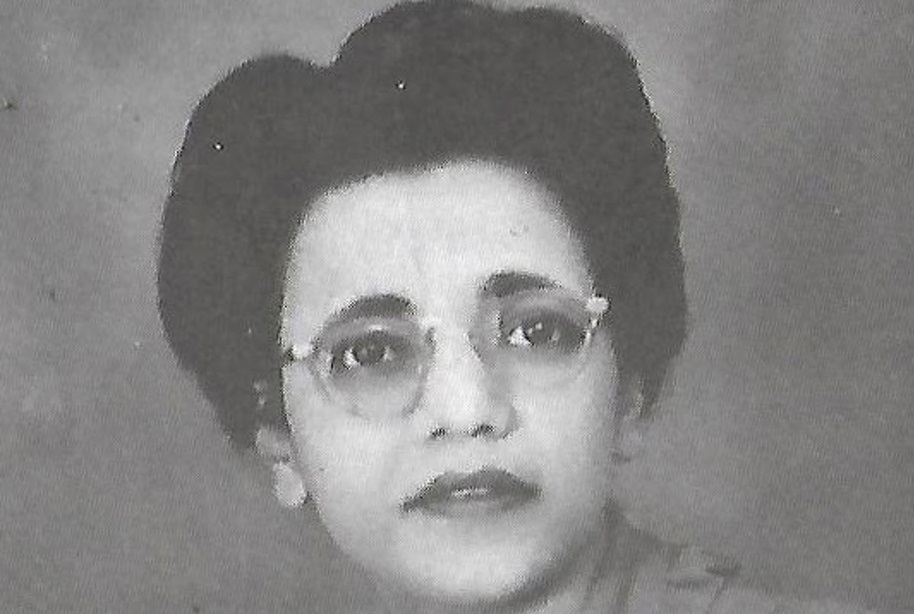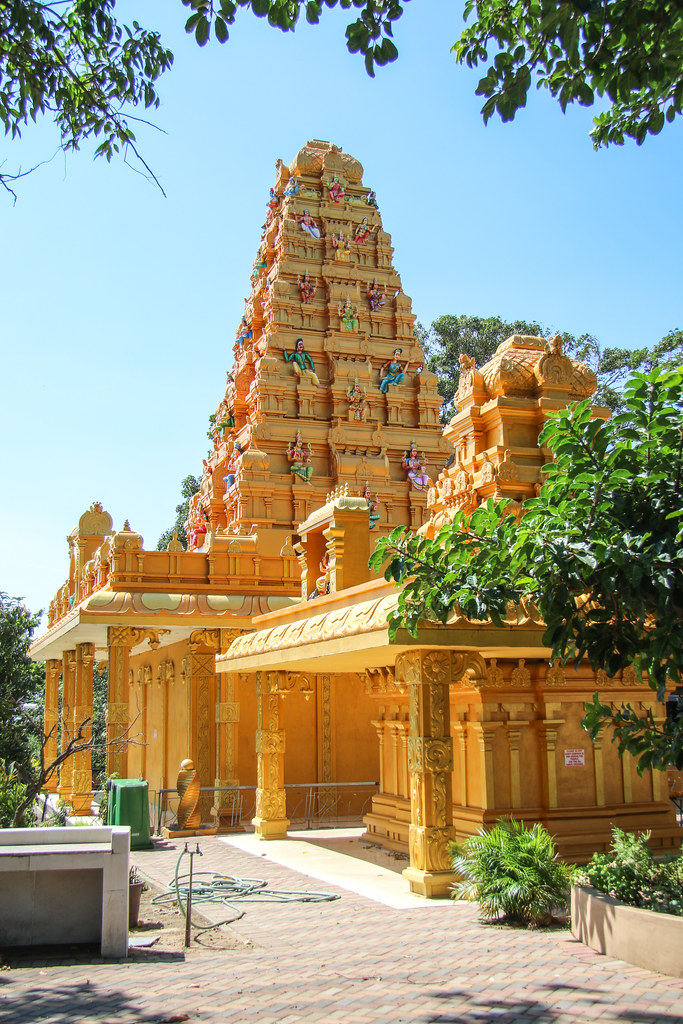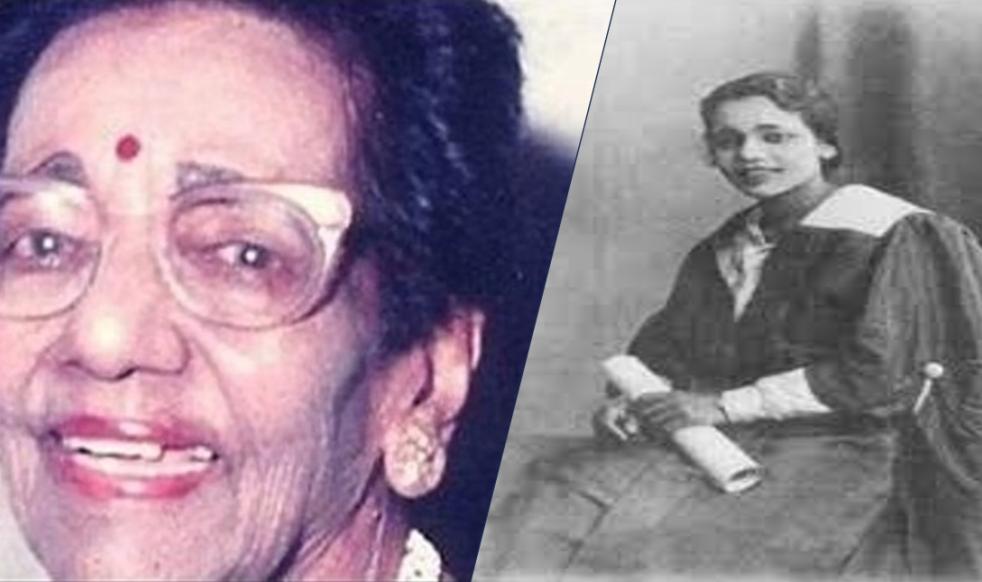In a poignant tribute to South Africa’s history of resistance and reconciliation, the Shri Mariamman Temple in Mount Edgecombe will unveil a marble bust of Dr. Kesaveloo Goonam on Women’s Day, 9 August. This dedication honours Dr. Goonam’s pioneering role as a medical professional and her tireless activism against apartheid.
Kesaveloo Goonam, also known as Dr. Kesaveloo Goonaruthnum Naidoo, is known for several significant contributions and achievements:

Pioneering Medical Career: Dr. Goonam was the first Indian woman doctor in South Africa. She studied medicine at the University of Edinburgh in Scotland and returned to South Africa in 1936 to establish a medical practice in Durban.
Anti-Apartheid Activism: She was a prominent anti-apartheid activist and a key figure in the Natal Indian Congress (NIC). Dr. Goonam played a leading role in the passive resistance campaign of 1946, which opposed the Asiatic Land Tenure and Indian Representation Act, known as the ‘Ghetto Act’. This act aimed to restrict land ownership and political rights for Indians in South Africa.
Advocacy for Equality: Dr. Goonam's activism was characterized by her efforts to challenge and dismantle the discriminatory policies of apartheid. She was arrested 17 times for her political activities, highlighting her steadfast commitment to the cause of racial equality.
Community Service: Beyond her activism, Dr. Goonam established a medical practice that catered specifically to black and Asian women in Durban, providing essential healthcare services with sensitivity and understanding.
Autobiography: Her autobiography, *Coolie Doctor*, published in 1991, recounts her experiences and struggles, using the term "Coolie" in a reclaimed context to reflect the racial slurs she faced and to document her journey.
Exile and Return: Due to increasing harassment from the apartheid regime, Dr. Goonam went into exile in 1978, living in several countries, including England, India, Australia, and Zimbabwe. She returned to South Africa in 1990 and participated in the country’s first democratic elections in 1994.
Dr. Goonam’s life and work are celebrated for her pioneering achievements in medicine and her relentless fight for social justice and equality.
Dr. Kesaveloo Goonam, who passed away in 1999, was the first Indian woman doctor in South Africa. Born in Durban in 1906, she faced formidable challenges to pursue her medical education. Despite the barriers, she studied at the University of Edinburgh, becoming a trailblazer for Indian women in the medical field. Returning to South Africa in 1936, she set up her practice in Durban’s Grey Street Complex and earned the nickname “Coolie Doctor,” a term she reclaimed as the title of her 1991 autobiography.
Dr. Goonam’s career was deeply intertwined with her commitment to social justice. She was a prominent figure in the Natal Indian Congress (NIC) and played a crucial role in the passive resistance campaign of 1946. This campaign, which protested the Asiatic Land Tenure and Indian Representation Act—known as the ‘Ghetto Act’—was a pivotal moment in the struggle against apartheid, aiming to challenge discriminatory laws that restricted land rights and political representation for Indians.
The Shri Mariamman Temple, where the bust will be installed, has a rich history itself. Established in 1898, it is one of the oldest Hindu temples in South Africa and an important cultural landmark. The temple, located in Mount Edgecombe, serves as a spiritual and cultural hub for the local community and reflects the architectural and cultural heritage of the Indian diaspora in South Africa. Its enduring presence underscores the vibrant role of Indian communities in the country’s history.

Seelan Achary, Chairman of the Shri Mariamman Temple, explained the significance of the tribute: “Dr. Goonam was a courageous activist and a dedicated medical professional. Honouring her with this bust is a way to celebrate her contributions to our struggle for justice and equality. This memorial will serve as a reminder of her legacy and inspire future generations.”
Dr. Goonam's activism was marked by her involvement in various organisations, including the Child Welfare and the Anti-Segregation Council, and her leadership in the NIC’s resistance efforts. Her relentless fight against apartheid led to 17 imprisonments, highlighting her bravery and commitment to social justice.
After facing increased harassment from the apartheid regime, Dr. Goonam went into exile in 1978, living in England, India, Australia, and Zimbabwe. She returned to South Africa in 1990 and participated in the country’s first democratic elections in 1994, symbolising the triumph of the values she had long championed.
Her legacy is also honoured through various recognitions, including a street in Durban named after her and the dedication of a PhD building at the University of Edinburgh. The unveiling of her bust at the Shri Mariamman Temple will stand as a testament to her contributions and the broader struggle for equality in South Africa.
This tribute not only celebrates Dr. Goonam’s achievements but also reinforces the importance of remembering and honouring the contributions of those who fought for justice. The bust will serve as a lasting reminder of her courage and dedication, inspiring continued efforts towards a more just and equitable society.

 185 Views
185 Views 0 comments
0 comments
Comments